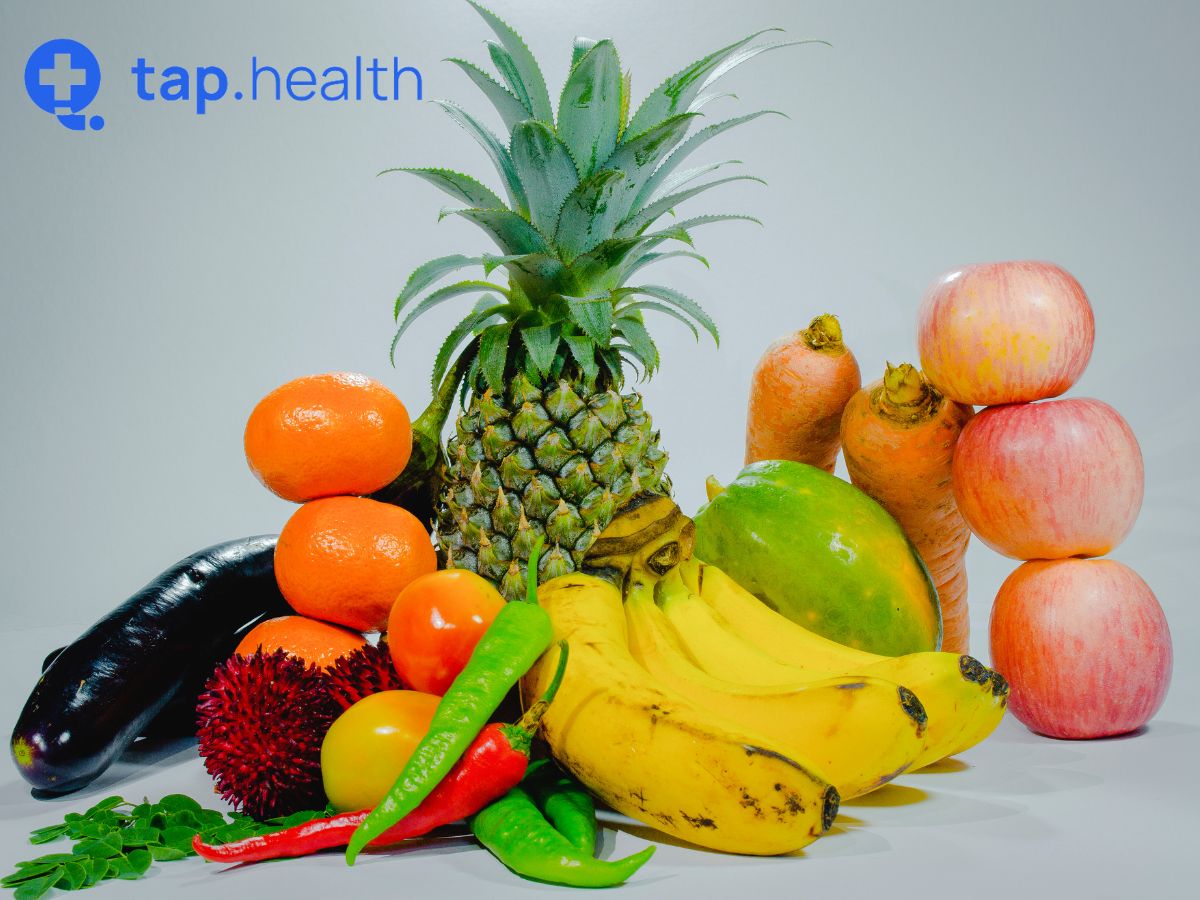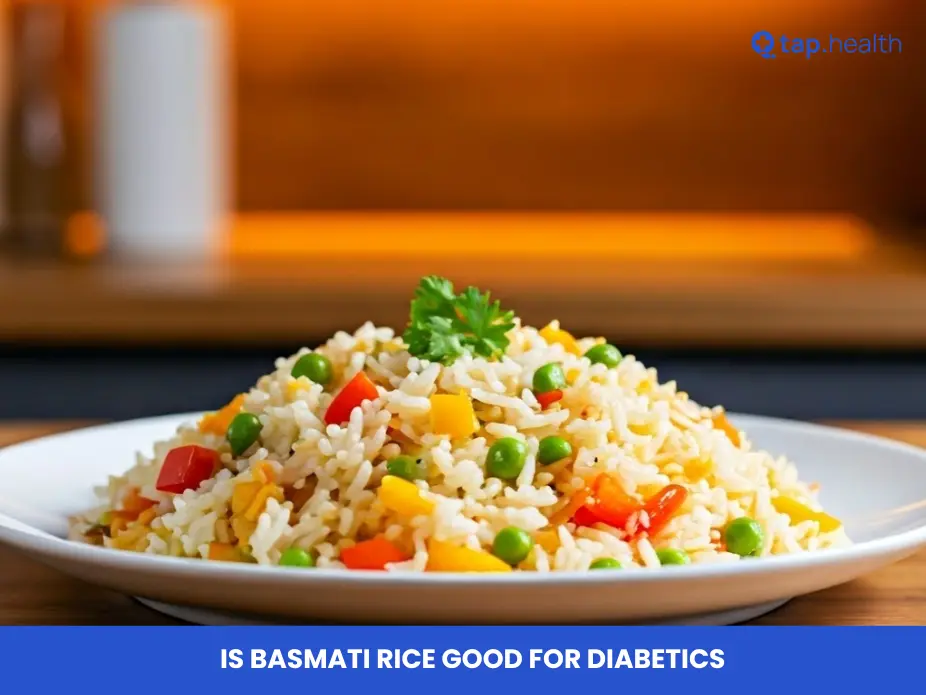Diabetes is a chronic condition that affects millions of people worldwide. Managing blood sugar levels is crucial for individuals living with diabetes, and diet plays a significant role in achieving this goal. While fruits are generally considered a healthy food choice, some have higher sugar content that can impact blood glucose levels. In this article, we will explore the seven worst fruits for diabetics to avoid and provide alternative options for incorporating fruits into a diabetes-friendly diet.
7 Fruits to Avoid in Diabetes
Fruits are packed with essential vitamins, minerals, and fiber that can promote overall health. However, when it comes to managing diabetes, it’s important to be mindful of certain fruits that contain higher sugar levels. These fruits, although delicious, can cause a rapid spike in blood glucose levels, which can be problematic for individuals with diabetes. To help you make informed choices, here are some fruits that you should limit or avoid:
1. Bananas
While bananas offer potassium and other nutrients, they are also high in carbohydrates. This means that they can have a significant impact on blood sugar levels, especially if consumed in large quantities. It’s not to say that you should eliminate bananas from your diet, but it’s crucial to consume them in moderation and consider factors like portion size and timing.
2. Grapes
Grapes are naturally sweet and can be quite tempting, but they can raise blood sugar levels due to their high sugar content. The small size of grapes can also make it easy to consume a large quantity without realizing it, which can further contribute to blood sugar fluctuations. If you do choose to enjoy grapes, it’s advisable to do so in small portions and pair them with a source of protein or healthy fat to help mitigate their impact on blood sugar levels.
3. Mangoes
Mangoes are undeniably delicious and packed with nutrients, but they have a high glycemic index. This means that they can cause a rapid increase in blood sugar levels. If you have diabetes, it’s important to be cautious when consuming mangoes and consider portion control. Including them as part of a balanced meal that contains protein and fiber can help slow down the absorption of sugar and minimize the impact on blood glucose levels.
4. Pineapple
Pineapple is a tropical fruit that brings a burst of flavor to any dish, but it contains natural sugars that can affect blood sugar levels. While it’s not necessary to eliminate pineapple from your diet, it’s advisable to consume it in moderation and pair it with other foods that can help balance its impact on blood glucose levels. Additionally, opting for fresh pineapple rather than canned varieties can be a healthier choice as canned pineapple often contains added sugars.
5. Watermelon
Watermelon is a refreshing and hydrating fruit, especially during hot summer months. However, it’s important to note that watermelon is high in sugar and can elevate blood glucose levels. If you choose to enjoy watermelon, it’s recommended to do so in small portions and consider pairing it with a source of protein or healthy fat to help slow down the absorption of sugar.
6. Cherries
Cherries are known for their vibrant color and sweet taste, but they also have a high sugar content. While cherries can be enjoyed as an occasional treat, it’s advisable to consume them sparingly if you have diabetes. Pairing cherries with a source of protein or fiber can help mitigate their impact on blood sugar levels.
7. Dates
Dates are a popular dried fruit known for their natural sweetness. However, they can cause a sharp rise in blood sugar levels due to their high sugar content. If you have diabetes, it’s best to avoid consuming dates or limit your intake to very small portions on rare occasions.
Avoiding or limiting these fruits can help individuals with diabetes maintain stable blood sugar levels and prevent spikes that can lead to complications. Remember, it’s always a good idea to consult with a healthcare professional or a registered dietitian who can provide personalized guidance based on your specific needs and medical history.
While it’s important to be mindful of the fruits mentioned above, it’s equally important to focus on incorporating a variety of other fruits that are lower in sugar and can be beneficial for individuals with diabetes. Some examples of such fruits include berries (such as strawberries, blueberries, and raspberries), apples, pears, and citrus fruits like oranges and grapefruits. These fruits provide essential nutrients and can be enjoyed as part of a balanced diet.
Impact of Sugar Content on Blood Glucose Levels
It is essential to understand the impact of sugar content on blood glucose levels for individuals with diabetes. When sugar is consumed in food, it is broken down into glucose and absorbed into the bloodstream. This process raises blood sugar levels, which can be problematic for individuals with diabetes.
Fruits with higher sugar content can cause a rapid increase in blood glucose levels, leading to hyperglycemia. Hyperglycemia, or high blood sugar, can cause symptoms such as increased thirst, frequent urination, fatigue, and blurred vision. If left untreated or uncontrolled, hyperglycemia can contribute to long-term complications associated with diabetes.
On the other hand, foods with lower sugar content, such as non-starchy vegetables and whole grains, have a slower impact on blood glucose levels. These foods are often recommended for individuals with diabetes to help maintain stable blood sugar levels throughout the day. By choosing foods with lower sugar content, individuals can better manage their blood glucose levels and reduce the risk of experiencing sudden spikes or drops.
It’s important to note that the glycemic index (GI) of foods also plays a role in how they affect blood glucose levels. The GI ranks carbohydrate-containing foods based on their impact on blood sugar levels. Foods with a low GI are digested and absorbed more slowly, causing a gradual rise in blood sugar levels. In contrast, foods with a high GI are digested quickly, leading to a rapid increase in blood glucose levels. Understanding the GI of foods can help individuals with diabetes make informed choices about their diet to support better blood sugar control.
Fruits to Eat in Diabetes
While some fruits are best to avoid or limit in diabetes, there are plenty of alternatives that individuals with diabetes can enjoy in moderation. These fruits have a lower impact on blood sugar levels:
1. Apples
Apples contain fiber and are a good source of vitamin C. Eating them with the skin can provide additional health benefits.
2. Strawberries
Strawberries are rich in antioxidants and low in carbohydrates, making them a suitable choice for individuals with diabetes.
3. Blueberries
Blueberries are packed with essential nutrients and have a lower glycemic index compared to other fruits.
4. Raspberries
Raspberries are high in fiber and have a lower sugar content compared to many other fruits.
5. Oranges
Oranges are a good source of vitamin C and fiber, but portion control is important due to their natural sugar content.
6. Pears
Pears offer dietary fiber and can be a nutritious addition to a diabetes-friendly diet.
7. Grapefruits
Grapefruits are low in calories and have a low glycemic index, meaning they have a minimal impact on blood sugar levels.
These fruits can be enjoyed as part of a balanced and varied diet for individuals with diabetes.
It’s important to note that the way fruits are consumed can also affect their impact on blood sugar levels. For example, blending fruits into smoothies can sometimes cause a quicker spike in blood sugar compared to eating them whole. This is due to the fiber content being broken down more rapidly in the blending process.
Additionally, incorporating fruits into meals that contain protein and healthy fats can help slow down the absorption of sugars into the bloodstream. For instance, pairing apple slices with a handful of nuts or adding berries to a yogurt parfait can create a more balanced snack option for individuals managing diabetes.
Best Diet for People With Diabetes
In addition to being mindful of fruit choices, individuals with diabetes should focus on adopting a well-rounded diet. A diabetes-friendly diet typically includes:
- A variety of non-starchy vegetables
- Lean sources of protein such as poultry, fish, and tofu
- Whole grains
- Healthy fats like avocado, nuts, and olive oil
- Low-fat dairy products or alternatives
It is advisable to consult with a registered dietitian or healthcare professional to create a personalized meal plan that takes individual needs and preferences into account.
When planning meals for individuals with diabetes, it is essential to consider the glycemic index of foods. The glycemic index ranks carbohydrates based on how they affect blood sugar levels. Foods with a low glycemic index, such as legumes, sweet potatoes, and quinoa, are digested more slowly, leading to a gradual rise in blood sugar levels. On the other hand, foods with a high glycemic index, like white bread and sugary cereals, can cause spikes in blood sugar.
Incorporating regular physical activity into a diabetes management plan is also crucial for overall health. Exercise helps improve insulin sensitivity, allowing cells to better utilize glucose for energy. It can also aid in weight management and reduce the risk of cardiovascular complications associated with diabetes. A combination of aerobic exercises, such as walking or cycling, and strength training can have significant benefits for individuals with diabetes.
Monitoring Blood Sugar After Eating Fruits
Individuals with diabetes should regularly monitor their blood sugar levels after consuming fruits to determine their impact. Every person’s response to food can vary, and it is crucial to be aware of how different fruits affect blood glucose levels.
Monitoring blood sugar levels can help individuals make informed decisions about portion sizes, meal timings, and potential adjustments to their diabetes management plan.
It is important to note that while fruits are generally considered a healthy choice, some fruits have a higher glycemic index than others. Fruits such as watermelon and pineapple have a higher sugar content compared to berries or apples, which can lead to a more significant spike in blood sugar levels.
Therefore, individuals with diabetes may benefit from choosing fruits with lower glycemic index values to help manage their blood sugar levels more effectively. Additionally, pairing fruits with protein or healthy fats can help slow down the absorption of sugar into the bloodstream, reducing the impact on blood glucose levels.
Real-Life Scenario
Imagine a person with diabetes who loves eating ripe bananas every morning. While bananas are healthy, overripe ones may cause their blood sugar to spike quickly. By switching to a smaller portion of low-GI fruits like apples or berries, they can still enjoy fruit without risking sugar fluctuations.
Expert Contribution
Endocrinologists and dietitians agree that people with diabetes don’t need to avoid all fruits, but they must be mindful of portion sizes and choose fruits with a low to medium GI. Experts suggest pairing fruits with protein or healthy fats (like nuts or yogurt) to slow down sugar absorption.
Recommendations Grounded in Proven Research and Facts
-
Choose low-GI fruits like berries, apples, pears, and guava.
-
Avoid fruit juices—they raise blood sugar faster than whole fruits.
-
Stick to small portions when eating high-sugar fruits.
-
Pair fruits with protein (like nuts) to balance sugar release.
-
Follow the plate method—fruits should be a small part of your meal, not the main dish.
FAQs on Fruits to Avoid in Diabetes
1. Can individuals with diabetes never eat fruits?
No, individuals with diabetes can still enjoy fruits as part of a balanced diet. However, it is crucial to choose fruits with lower sugar content and monitor blood glucose levels.
2. How much fruit can someone with diabetes consume in a day?
The recommended amount of fruit for individuals with diabetes varies based on factors such as activity level, overall health, and individual goals. It is advisable to work with a registered dietitian or healthcare professional to determine portion sizes that suit individual needs.
3. Are frozen or canned fruits suitable for people with diabetes?
Frozen or canned fruits can be consumed by individuals with diabetes, as long as they do not contain added sugars. It is important to check food labels and choose options with no added sugar or syrups.
4. Are fruit juices a good choice for individuals with diabetes?
Fruit juice can cause a rapid increase in blood glucose levels due to its concentrated sugar content. It is advisable to consume whole fruits instead, as they provide fiber and have a lower impact on blood sugar levels.
5. What are some examples of fruits with lower sugar content?
There are several fruits that individuals with diabetes can enjoy without worrying about a significant increase in blood sugar levels. Some examples include berries such as strawberries, raspberries, and blueberries, which are high in fiber and antioxidants. Additionally, avocados, which are technically a fruit, are an excellent choice as they are low in sugar and high in healthy fats.
6. Can individuals with diabetes eat bananas?
Bananas are a popular fruit, but they do contain higher amounts of sugar compared to some other fruits. However, they also provide essential nutrients such as potassium and vitamin C. It is recommended to consume bananas in moderation and consider pairing them with a source of protein or healthy fat to help balance blood sugar levels.
References
-
Harvard Health Publishing: The lowdown on glycemic index and glycemic load
-
Mayo Clinic: Diabetes diet: Should I avoid sweet fruits?
-
American Diabetes Association: Fruit and Diabetes
-
Healthline: 10 Low-Glycemic Fruits for Diabetes
-
National Institute of Diabetes and Digestive and Kidney Diseases (NIDDK): Diabetes Diet, Eating, & Physical Activity



